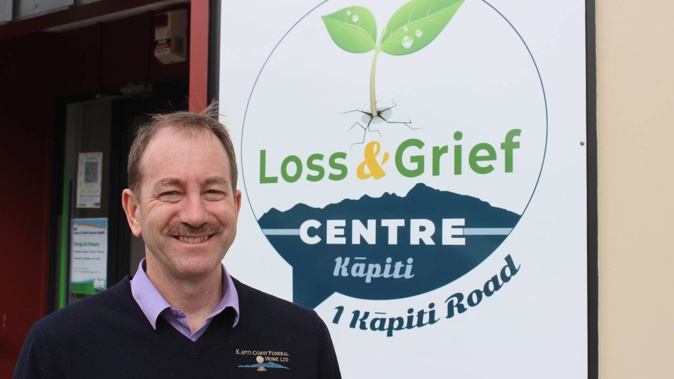
Funeral directors around the country are calling on the Government to increase funeral grants for low-income families with Kāpiti Coast Funeral Home managing director Andrew Malcolm adding his voice to the call.
The Funeral Directors Association of New Zealand wants the Government to increase the Work and Income (WINZ) Funeral Grant in this year's Budget so eligible low-income families are able to farewell loved ones with dignity and respect.
The current maximum amount is $2280.72 which chief executive Gillian Boyes said is woefully inadequate.
The amount covers just 37 per cent of the cost of a simple funeral cremation and only 29 per cent of a funeral and burial, well short of the essential funeral costs the grant was designed to cover.
Kāpiti Coast Funeral Home managing director Andrew Malcolm said, "The cost of living has dramatically increased over the years, but the WINZ Funeral Grant has not kept up.
"I agree the WINZ Funeral Grant is woefully inadequate, especially considering Gillian's point that even the average cemetery charges are 1.5 times the actual grant, let alone consideration of any of the other basic costs, such as transportation of the deceased, preparation care for viewing, caskets, public notifications of death and so on."
"Everybody's talking about the cost of living, but what about the cost of dying," Gillian said.
"Apart from CPI adjustments, the funeral grant was last increased nearly 20 years ago so changes are long overdue.
"With the average cost of a burial plot alone being $3523 it's clear that the grant is removing all choice for low-income families to farewell their loved ones in a meaningful way."
Gillian said families are being driven to make difficult decisions.
"Our members often see families choose cremation when a burial might be more appropriate for cultural or religious reasons.
"We also know some families can only afford to choose direct cremation options with no funeral at all.
"It's frankly outrageous that these families have to make this choice when they are meant to have access to something called a 'funeral' grant."
Andrew said Kāpiti Coast District Council cemetery charges are $3912 alone which is nearly 1.5 times the grant, leaving no funds for other funeral costs, and leaving a family to find other ways to raise funds.
"When I started in the profession 40 years ago the grant would have covered 60 per cent of a normal funeral, whereas today it would need to be nearer $6000 to be 60 per cent of an average funeral.
"With other funeral homes that have higher charges than us it would be even worse."
The Funeral Directors Association of New Zealand proposes immediately increasing the maximum amount payable under the grant to $6300.
This would cover 80 per cent of the cost of a simple funeral with a burial and brings it into line with ACC's funeral provision for those who die by accident.
Given this is an asset and income-tested grant, the estimated fiscal impact would be limited to a maximum of an additional $14 million based on the number of claimants who meet the current eligibility criteria.
"Compared to the other asks and investments that will be made during this year's Budget, we don't think this is asking for much for some of society's most vulnerable," Gillian said.
"There are also downstream savings — we know not being able to farewell someone can contribute to poorer mental health outcomes which might later be a cost to the Government."
Gillian said the association also wants the Ministry of Social Development to provide clear guidance on what is classed as essential under the grant to ensure consistency and equity of access to the full entitlement for those who are eligible for this grant.
"Looking ahead to other ways this support could be improved, we would love to see a simpler process for applying so that vulnerable New Zealanders at what may be an extremely difficult time do not face unnecessary barriers to accessing this grant if they are eligible."
Currently, claimants must complete a 12-page form setting out in a huge amount of detail about their income and assets with supporting documentation.
The association is also calling for the Ministry for Social Development to commit to reviewing the allowable income and assets of claimants before next year's Budget, to ensure the asset tests are reasonable, especially in the context of the cost of living outstripping increases in wages and benefits over time.
Gillian said the Funeral Directors Association of New Zealand is advocating for these changes because its members are on the front line and too often see the devastating impact on vulnerable families if they are not able to farewell their loved ones with appropriate dignity and respect.
Andrew said, "I feel the most vulnerable in society should be looked after, not just supported by funeral homes and local churches, but also by central government picking up a more reasonable part of the tab."
Take your Radio, Podcasts and Music with you









